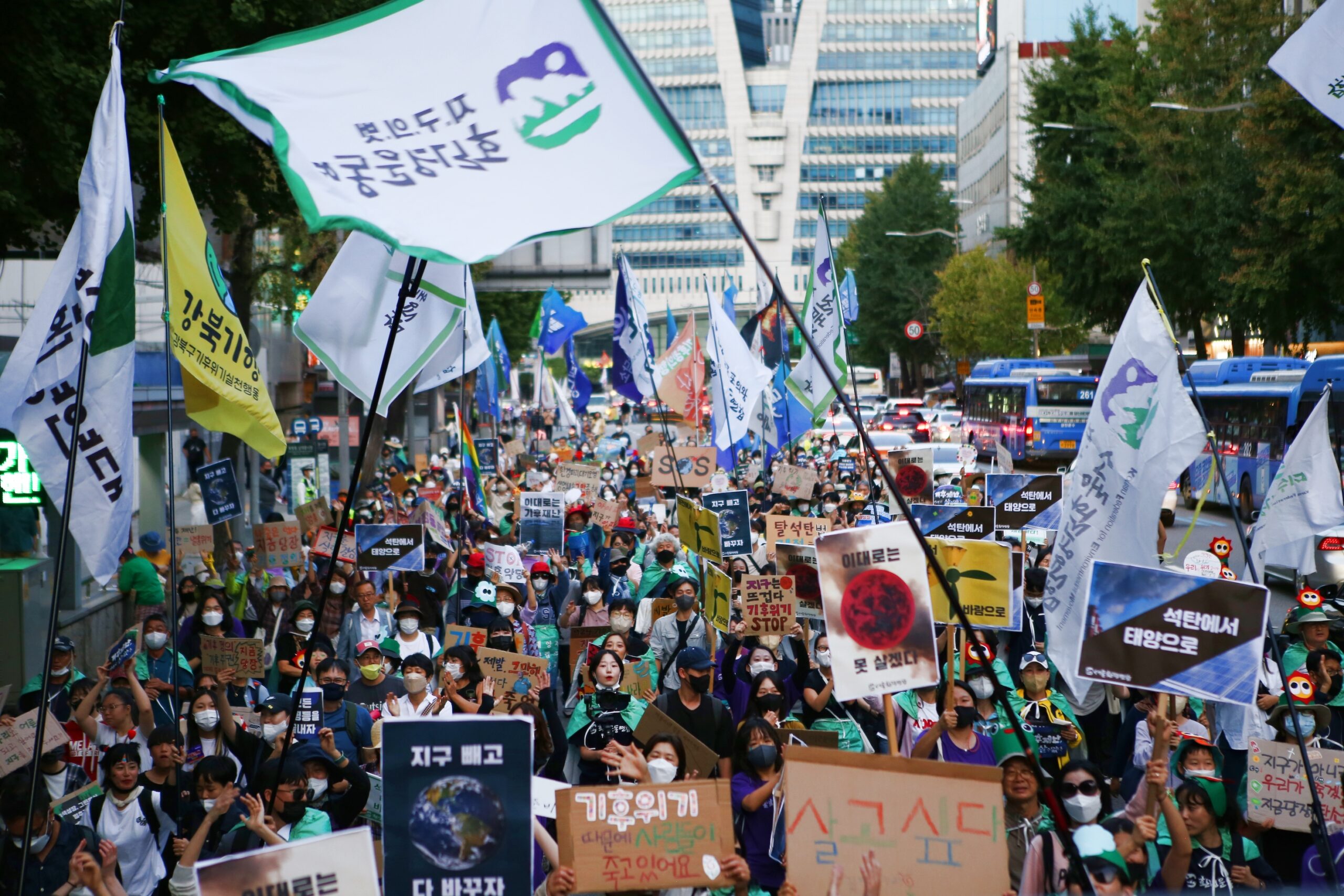Climate justice and energy

Fighting for climate justice
Owing to the climate crisis, the international demand for phasing out coal power plants has grown. However, in Korea, coal power accounts for the largest proportion (35%) of energy production, and four new coal power plants are currently under construction. Coal-fueled power plants emit nearly 30% of the CO2 in Korea, which highlights the urgency of build more renewable energy power plants to overcome the climate crisis.
Under the new environmental goal “2050 NET-Zero,” the Korean government aims to reduce greenhouse gas emissions by 40% until 2030, compared with the levels in 2018, which is a baseline year.
However, these efforts—which are meant to reduce national emissions and meet the 1.5 ºC goal of the Paris Agreement—might fail, as the government intends to rely on coal power to generate at least 20% of national energy requirements by 2030, without a solid plan to expand renewable energy.
Against this backdrop, we will continue to achieve our goals and improve the national energy policy for CO2 reduction. Every year we organize a climate justice march in Korea along with the participation of civic groups: in 2022, about 35,000 people gathered for the march.
